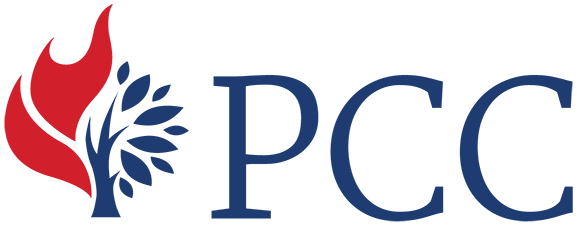Canadian Anti-Spam Legislation (CASL) came into effect on July 1, 2014. This law impacts Canadian charities and how we communicate with our constituents. The following information has been created to help you determine what, if any, adjustments you need to make to your electronic communication. Remember, the push behind this legislation is in response to the fact that people do not want to receive spam. The new rules will help prevent Canadian organizations and individuals from sending unwanted messages and provide an easy way to unsubscribe from future communication.
How CASL Works
The anti-spam legislation governs the sending of “commercial electronic messages” (CEMs) to or from an electronic address in Canada. CEMs are defined as electronic messages that encourage participation in a commercial activity, whether or not there is an expectation of profit. If you’re advertising, promoting, marketing or offering a product, good or service, the message would be considered a CEM and must adhere to the anti-spam legislation.
What is “spam”?
All those unwanted, irrelevant and sometimes inappropriate emails that find their way into your inbox are all considered spam. Your junk folder filters some spam messages, however many still make it through. Anti-spam legislation will make it illegal for Canadian businesses and groups to send spam. If you do receive an unwanted message, you’ll now be able to quickly opt out of future messages.
Exemptions
Since CASL involves messages that have a commercial element, messages about upcoming church activities (e.g., Bible studies, committee meetings, church picnics, children’s programming, outreach programs, etc.), or informational messages and newsletters that do not contain any commercial content, will not be subject to CASL. For example, a message you send that contains a sermon, devotional or church update would be considered exempt.
However, any kind of invitation to participate in a commercial activity would require following CASL requirements (such as sending an email that contains advertising for a local business, promoting the FundScrip gift card program, endorsing a church team sponsored by a business, etc.)
Fundraising by Charities
The Presbyterian Church in Canada and all individual churches are registered charities under the Income Tax Act. CASL contains a full exemption for fundraising appeals sent by or on behalf of a registered charity. Also exempt are messages that do not directly solicit donations but whose primary purpose is raising funds for a congregation (e.g., an email about a church bazaar, bake sale, etc.).
Consent Requirements
The majority of electronic communication from Presbyterian congregations will be exempt from CASL requirements; however, a message would not be exempt if it contains any of the following:
- Information about participating in the FundScrip gift card program, or similar program
- Third-party advertising, such as promoting a local business
- Endorsements for a commercial entity, such as through a co-sponsored event
If the message going out is not exempt from CASL, consent must be obtained before the message is sent. There are two forms of consent: express or implied.
Express consent:
Prior to July 1, 2014, if a recipient has provided their email address for the purpose of receiving email from an individual church, it is considered express consent. Communication may continue until the recipient withdraws consent.
After July 1, 2014, express consent must be obtained with the following information clearly and readily available:
- The purpose for which consent is being sought (e.g., subscribing to a church newsletter distribution list).
- The name of the person/group seeking consent (e.g., St. Andrew’s Presbyterian Church, Kitchener, Ontario).
- The contact mailing address and a telephone number or email address.
- An unsubscribe option that allows the recipient to opt out from future messages. The unsubscribe option must be available for at least 60 days and the email must be removed within 10 business days.
Implied consent:
Implied consent exists where the sender and the recipient have an existing relationship. There are limitations around what is considered a relationship; however, it includes volunteers or someone who has made a donation within the past two years. The two-year term is important if you are considering contacting previous donors for a fundraising appeal. Where a recipient donated or volunteered with an individual church any time prior to July 1, 2014, a three-year transitional period is available. The two-year time period applies to all those who give on or after July 1, 2014.
When in Doubt, Comply
All messages, whether exempt from the legislation or not, will adhere to CASL requirements by following three steps:
- Seek consent – Consent must be either expressed or implied, based on your relationship with the recipient. You can confirm someone’s consent by providing an option to subscribe to your communication and third-party services are available to support this process. Contact the Communications Office at national office for more information.
- Confirm identity – Clearly identify yourself or the person/group the message is being sent on behalf of. Phone numbers and email, web and mailing addresses should all be easy to find.
- Allow unsubscribes – Provide an easy way for recipients to unsubscribe from receiving future messages. This may take the form of a button that automatically generates a response, allowing someone to confirm their request on a website, or it could simply be an email address to someone who manages the distribution list. The request must be processed within 10 business days.
Learn More
To discuss any concerns you may have about your church’s electronic communication and CASL, contact Barb Summers Associate Secretary, Communications, 1-800-619-7301 ext. 243.
You can also find additional information at: http://www.crtc.gc.ca/eng/internet/anti.htm




Fantastic! Thanks for this!
Thank you so much for this. It certainly helps us to understand the overall legislation and how it particularly is related to what we do. It helps to be able to explain it to others. Great work
Thank you for clarifying this piece of legislation.
This is excellent! Thank you for a very clear and helpful explanation in an area where many are experiencing significant amounts of confusion.